The Greenhorns: 50 dispatches from the new farmers movement is a collection of 50 essays by beginner farmers, and sits as a companion to The Greenhorns documentary. I seriously enjoyed this book more than anything I’ve read in a long time.
The book is loosely divided into subjects: family, crops, tools, finances, animals, access to land, part-time farming etc. All 50 of these essays are short pieces written from the heart, with all the joy and tooth-exploding frustration that is learning to farm. But it was the subtlety of some of the insights that got me the most.
Take the whole concept of ‘part time farming’. Working as we do, we have a lot of conversations with people about what constitutes a ‘real farmer’ or a ‘real farm’. It’s endlessly interesting to me that many people (and many farmers) think that if you’re not farming, full-time, on a gigantic farm, then YOU ARE NOT A FARMER. NOT REALLY.
As multiple essays in this book point out, however, it’s not that simple. Especially for beginner farmers who don’t have access to capital, or secure land tenure. In some cases, working a desk job 2-3 days a week and working their plot for the rest of their week is the balance needed to get to the ultimate goal, and no less real a commitment than a full-time farm.
Or take the very interesting problem of being brought up in a strongly union, working-class household, only to find as a beginner farmer, with a picking schedule to keep, you’re needing to enter into employee relationships with you on the boss-man end. As one essay relates:
I was raised by leftist labor organisers in Kentucky, Detroit, and Queens, and it’s fair to say that the plight of the Big Boss Man was not a frequent topic of conversation around our breakfast table. I learned the importance of work and the compromised position of the worker, and i was taught to question at every level the judgement and the ethics of the person in charge.
So, to that small subset of the American population that was raised in the inner-city by Marxists before going on to start small, diversified farms and employ several recent college graduates, i say ‘hey, I can relate’. It’s not easy to be a boss, especially when your workers are getting paid more than you are, the pigweed is as high as your navel, and the man at the farmers market is smiling while he complains about the price of your dill – Ben James, ‘Worth’.
Or the essay on the winding road towards land tenure, via long-term leases, family loans and intricate not-for-profit structures. I love the reality and work-around nature of so many of these pieces.
I also like this book for its balance. It has entries by beginner market gardeners, small scale grain croppers, graziers, dairies and most of all integrated small-farm enterprises doing a little bit of everything as they figure out what works best to make the books balance and their backs not fail at the end of the season.
There’s also a nice mix of essays from large scale farmers, small-scale, micro farms and urban farms too.
Running through all these stories is a thread of the bottom line, which is actually really refreshing. These are not essays by folks who are playing with the idea, or the ‘look and feel’ of farming. There are no recipes for how to make rustic dishes, or how to make a raised veggie bed on the weekend (not that there’s anything wrong with raised veggie beds – love em).
These essays are by the kids actually doing it, who are either in the process of, or recently have succeeded in packing up their former lives, given everything else away, and started off in pursuit of figuring out how the heck to grow good food for their communities, and not go broke doing it.
I’d recommend this book for anyone considering, embarking on or inside a life of farming, whether out on the range or in the city. It made me laugh and cry (corny, but true) and I gained a lot from the energy and insights shared by all the contributors.
>> The Greenhorns: 50 dispatches from the new farmers movement (+ Kindle version) edited by Zoë Ida Bradbury, Severine von Tscharner Fleming and Paula Manalo.
We screened The Greenhorns Documentary in Gerringong in August last year with Joel Salatin… such a fun night…
The back of the book also has a dense list of resources full of exciting ideas, internship models, land access plans etc which got me dreaming of Australia-wide networked small farm internships.
But in the meantime, here’s the websites of farmers who contributed essays, all of whom are doing really interesting things:CONTRIBUTING FARMERS
- Erin Bullock: Mud Creek Farm: www.mudcreekfarm.com
- Courtney Lowery Cowgill & Jacob Cowgill: Prairie Heritage Farm: www.prairieheritagefarm.com
- Douglass DeCandia: Food Bank for Westchester: www.foodbankforwestchester.org
- Evan Driscoll: Running with Pitchforks
- …& Sasquatch Acre
- Andrew French: Living the Dream Farm: www.ltdfarm.com
- Liz Graznak: Happy Hollow Farm: www.happyhollowfarm-mo.com
- Brad Halm: Seattle Urban Farm Co: www.seattleurbanfarmco.com
- Lynda Hopkins: Foggy River Farm: www.foggyriverfarm.org
- …& The Wisdom of the Radish
- Sarah Hucka: Circle h Farm: www.circlehorganicfarm.com
- Ben James: Town Farm: www.nohotownfarm.com
- Neysa King: Dissertation to Dirt
- Samantha Lamb: Samantha Lamb Photography
- Saralee Lawrence: Plots to Plates: www.plotstoplates.wordpress.com
- …& Rainshadow Organics: www.rainshadoworganics.com
- Maud Powell: Siskiyou Sustainable Cooperative: www.siskiyoucoop.com
- Meg Ryan: Wild Goose Farm: www.wildgoosefarm.net
- Ginger Salkowski: Revolution Gardens
- Sarah Smith: Grassland Farm
- Sarahjane Snyder: Look at the Sky and Tell the Weather
- A. M. Thomas: Wear a Wax Dustcoat: www.wearawaxdustcoat.net
- Tanya Tolchin: On the Lettuce Edge: www.thelettuceedge.wordpress.com
- Josh Volk: www.joshvolk.com
- …& Slow Hand Farm: www.slowhandfarm.com
- Jenna Woginrich: Cold Antler Farm: www.coldantlerfarm.blogspot.com.au
Whew! So much goodness. Go to it. Read the book. Start planning for the growing season. Eat well, sleep soundly (if only from exhaustion) and be happy.
>> More posts about good books + resources on Milkwood.net
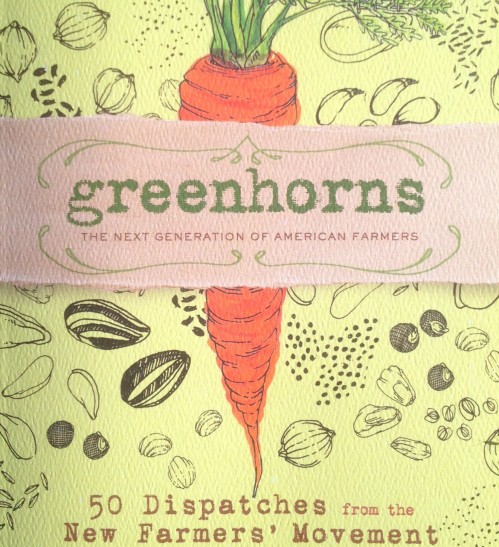
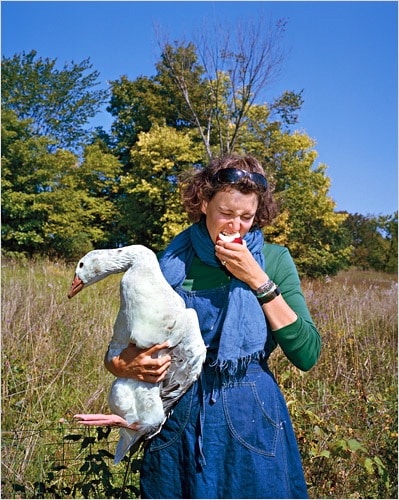
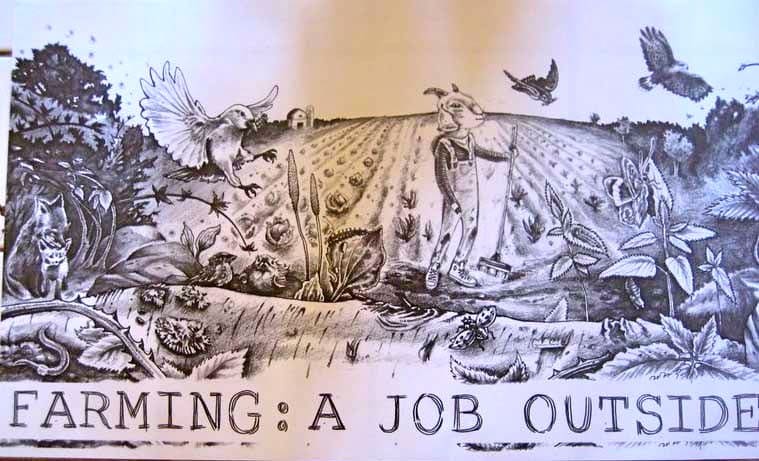
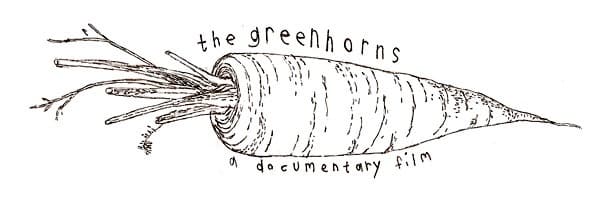
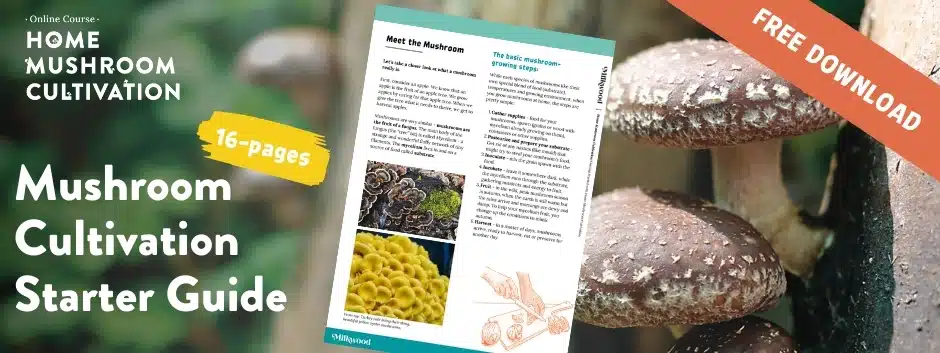
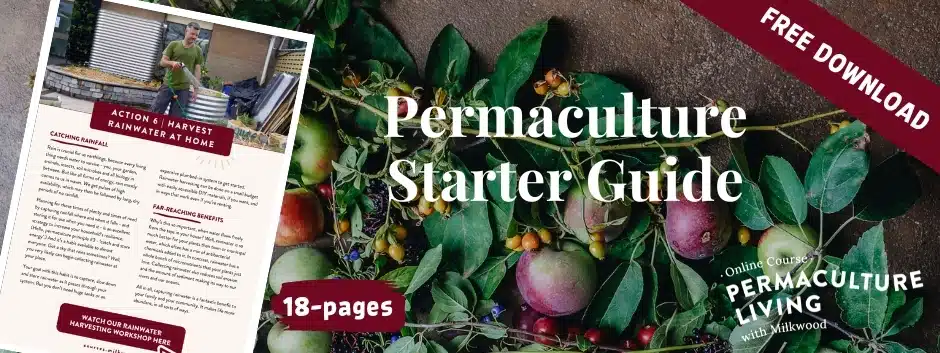
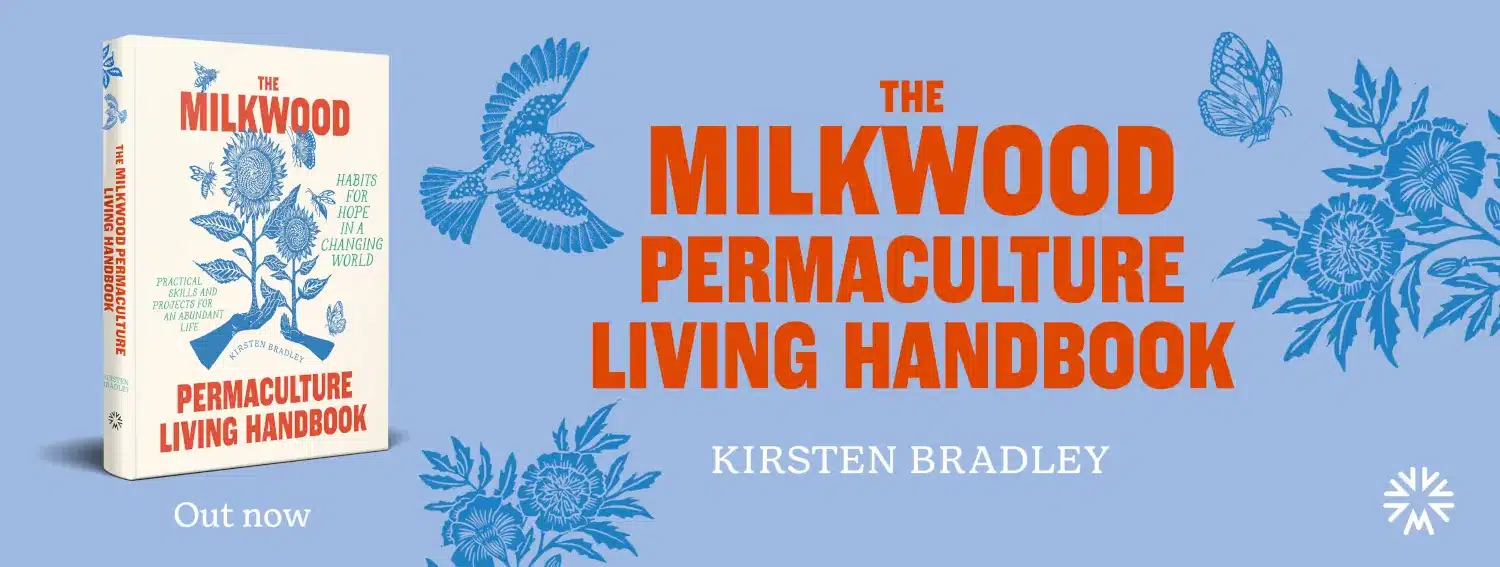
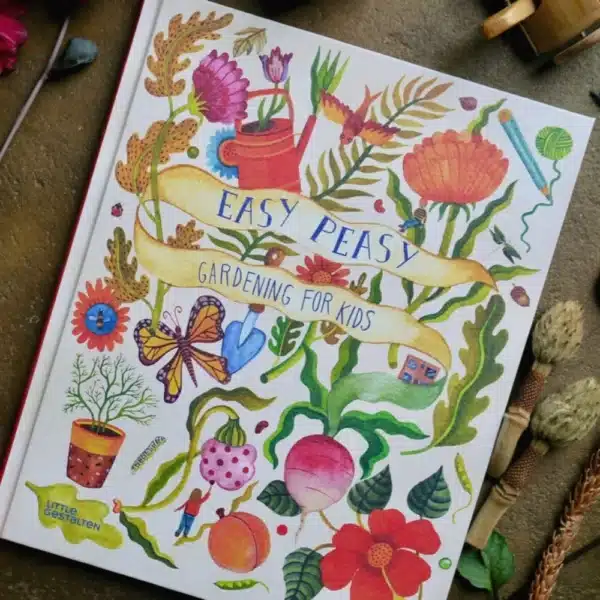
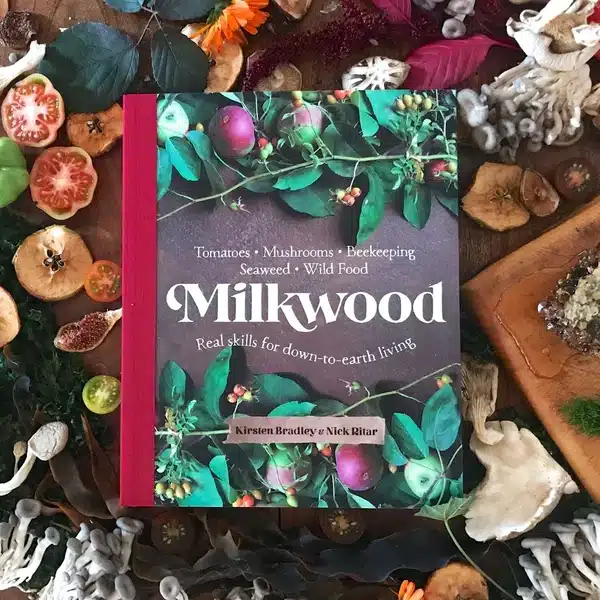
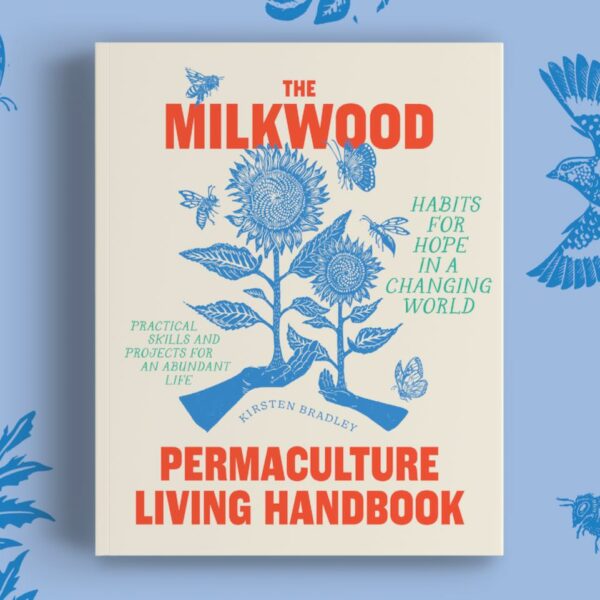






Looks like a great book. I hate it when people complain about the price of quality food, the hidden cost of cheap food is never questioned? Cheap food from China and America, but then we have to pay unemployment benefit to farmers! What value do people place on things. In Europe people pay far more for their food and the quality is outstanding. Even in low income communities some people place value on a healthy diet over ‘stuff’.
Hi I would really love to see this documentry. Is there anyone in Australia that sells it.Thanks
Not that I know of sorry! We got our copy from The Greenhorns, maybe ask them?
great review kirsten! think i’m gonna track down a copy… am keen to hop back in the permie world and get inspired/get moving again and this looks like a good one!
Just what we need, at just the right time. We are thinking about making a farm move. I’m having trouble getting the e version though.
has anyone addressed the issue of animal cruelty by new or urban farmers who cannot or will not buy construction materials adequate to protect their goats, poultry, rabbits, from predators? and who also can’t afford proper meds and vet care? i’ve noticed a lot of animal cruelty going on in survivalist/punk farmer blogs.
I agree, if you have animals you have to treat them like your children and secure them so they are safe at all times, feed then well so they don’t get sick and if they do get help for them not as I hear so often ‘they are only animals, why waste the money’!
Yes, people are addressing it all the time, especially by holding up ‘best practice’ systems. A good point to remember is that by localising and scaling-down animal production systems, any bad practice inherently affects less animals, and the chain-of-responsibility is much more clear than in a large-scale (or corporate) run operation.